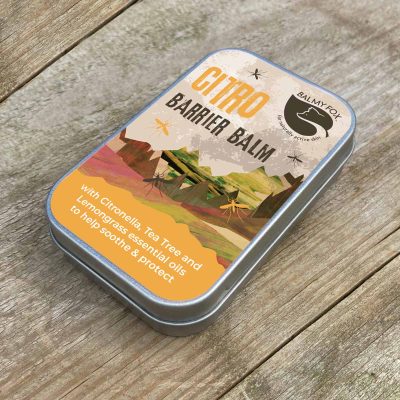DEET Toxicity: The Case for Safer, Natural Insect Repellents
You slather it on without a second thought to ward off mosquitoes and ticks during the summer. But have you ever really looked at the list of ingredients in that bug spray you’re using? If DEET is on there, you may think again before coating your skin in the chemical concoction. New research shows this common insect repellent could be toxic to your health and the environment.
Studies link DEET exposure to everything from skin rashes to memory loss and cancer. This nasty neurotoxin is also building up in waterways and harming wildlife. The good news is that natural alternatives work just as well at keeping the bugs away without the risks. Essential oils like citronella, eucalyptus, and lemongrass have been shown to repel insects for hours and are non-toxic, sustainable options.
Do yourself and the planet a favour this summer – ditch the DEET and go natural. Your health and the health of future generations will thank you. There’s no reason to continue using outdated, dangerous chemicals when natural solutions can protect us without toxicity. Make the switch – you’ll breathe easier knowing you’re doing the right thing for yourself and the environment.
The Toxic Truth: How DEET Can Harm Your Health
Have you seen the warnings on DEET insect repellent labels? That stuff is potent and potentially toxic. Studies show DEET may harm your health, especially when used long-term or in high concentrations. DEET can irritate your skin, eyes and respiratory tract. It may cause rashes, blisters and peeling. In severe cases, it can lead to chemical burns. DEET is also suspected of being a neurotoxin, damaging brain and nervous system nerves.
Some research links DEET exposure to memory loss, tremors, and seizures. DEET poses risks to wildlife and the environment too. It’s highly toxic to birds, fish, and aquatic invertebrates. According to a USGS study, DEET contaminates groundwater and, in tests carried out in the United States, was even found in 75% of streams and waterways, with similar results and effects can be found in the U.K.
There are natural alternatives that work great and are non-toxic. Essential oils like citronella, eucalyptus, peppermint and lemongrass naturally repel insects. You can apply the oils directly to your skin, diluted in a carrier oil. Or use products containing these essential oils like sprays, lotions and balms.
Natural insect repellents may require more frequent reapplication. But when you weigh the risks of DEET versus the inconvenience, your health and the planet are worth it. Ditch the toxic chemicals and go natural. Your body and Mother Nature will thank you.
DEET and the Environment: An Ecological Disaster
DEET is terrible for the environment. Studies show it’s toxic to wildlife and pollute water systems. When you spray it on your skin, much of it washed off into lakes and streams, contaminating the water and harming animals.
DEET accumulates in the tissues of fish and amphibians, even in low concentrations. It’s lethal to some species and causes behavioural changes in others that threaten populations. DEET also kills beneficial insects like bees, disrupting ecosystems.
The impact is frightening. DEET has been detected in 75% of U.S. waterways, including the Mississippi River. Runoff from lawns and gardens is a significant source of water pollution, and DEET only adds to the toxic mix.
There are natural alternatives that work and are eco-friendly. Citronella, eucalyptus, and lavender essential oils are proven safe repellents for people and the planet. You can find sprays, lotions, and bracelets infused with these essential oils.

DEET may be convenient, but it comes with risks to health and the environment that aren’t worth it. Our planet is drowning in chemicals; the less toxic we add, the better. Using natural insect repellents is an easy way to do your part in creating a greener future for the next generation. The alternatives work, so try them – your family and the fish will thank you!
New Research Shows DEET Exposure Linked to Neurological Damage
New research shows that DEET, the active ingredient in many insect repellents, may be linked to neurological damage and other health issues. Several studies have found that DEET exposure can damage the central nervous system, especially in large doses or over a long period.
Brain and Nerve Cell Impacts
- A study from Duke University found that DEET caused death and damage to rat brain cells in lab experiments. Researchers observed that DEET directly inhibited the function of brain and nerve cells.
- Other research has shown that DEET can block the transmission of signals in the nervous system of insects and mammals, including humans. This disruption of neurotransmission may lead to problems with memory, learning, and behaviour.
Developmental Effects
- DEET exposure during pregnancy or childhood development may be particularly harmful. Studies with rats and mice found early-life exposure to DEET led to neurobehavioral issues, especially in male offspring. Researchers observed problems with motor function, learning, memory, and anxiety-like behaviours.
- Children have higher skin absorption rates of DEET and lower body weights, so that they may receive a larger dose of DEET for their size. Kids also have developing nervous systems that are more vulnerable to toxic effects.
Instead of DEET, safer alternatives for avoiding insect bites include:
Natural essential oils like citronella, peppermint, eucalyptus, lavender or lemongrass oil.
Picaridin is an insect repellent derived from pepper plants. It provides similar protection to DEET without the potential neurotoxic effects.
IR3535, an amino acid-based repellent. Studies show it is non-toxic and provides up to 10 hours of protection from insects.
With evidence mounting about the health and environmental risks of DEET, natural and synthetic alternatives can help you stay bite-free without the dangers. The chances of West Nile virus or Zika might make DEET seem like the only choice, but safer options are out there if you know where to look. Your health and your family’s health are worth the effort to seek them out.
Natural DEET Alternatives: Essential Oils That Repel Insects
Essential Oils: Natural Repellents Without the Toxicity
Instead of DEET, consider essential oils as natural insect repellents. Several essential oils have been shown to deter mosquitoes, ticks, and other biting insects effectively. The best part? They don’t pose the same health and environmental risks as DEET.
- Citronella oil is one of the most well-known natural repellents. Its citrus scent masks the odours that attract mosquitoes and other insects. Apply citronella oil directly to the skin, diluted in a carrier oil like jojoba oil, or use citronella-infused products like candles, torches, and sprays.
- Lemongrass oil contains citral, a compound that acts as a natural insect repellent. Apply lemongrass oil to the skin, diluted in a carrier oil, or use lemongrass-infused sprays and lotions. The refreshing lemony scent will make you less appealing to insects.
- Peppermint and eucalyptus essential oils contain compounds like menthol that repel mosquitoes and other biting bugs. Their strong minty scents overwhelm the odours that attract insects. Apply a few drops of peppermint or eucalyptus oil, diluted in a carrier oil, to your skin or clothes before going outside.
- Lavender oil has insect-repelling properties and a pleasant floral scent. While not as effective as citronella or lemongrass, lavender oil still deters many common insects when applied to diluted skin in carrier oil.
Using essential oils as natural insect repellents lets you enjoy the outdoors without exposing yourself, children or the environment to the potential dangers of DEET. The pleasant scents of citronella, lemongrass, peppermint and lavender naturally repel insects while leaving you smelling fresh. Dilute a few drops of your chosen essential oils in a carrier oil like jojoba or sweet almond oil and apply directly to the skin, especially on exposed areas like ankles, wrists and behind the ears. You’ll be biting bug-free all season long.
FAQ: Common Questions About DEET Toxicity and Natural Repellents
Is DEET really that bad?
You’ve probably used DEET insect repellent before without thinking twice about it. However, some studies have linked DEET to potential health risks like skin irritation, neurotoxicity, and hormone disruption. While DEET is considered safe in small doses and for short-term use, frequent long-term exposure may be problematic, especially for children.
What are the environmental impacts of DEET?
DEET does not break down easily in the environment and has been found in soil, surface water, and groundwater samples in the U.S. and elsewhere. DEET may be toxic to birds, fish, and other wildlife. It has been shown to damage the nervous systems of mosquitoes, flies, and cockroaches. Who knows how it may impact ecosystems over time?
Are natural insect repellents effective?
Plant-based repellents like citronella, lemongrass, peppermint, and eucalyptus essential oils have been used traditionally for centuries and shown to repel insects. While natural repellents may require more frequent reapplication, they do work without the health and environmental risks of DEET. Some repellents containing IR3535 or picaridin have also been shown to be effective alternatives.
What are some tips for using natural insect repellents?
- Apply repellent before going outside and reapply every 2 hours, especially after swimming or exercise.
- Use a higher concentration of essential oils, ideally 5-10%. Lower concentrations around 1-3% may not be effective for long.
- You can make your natural repellent spray by combining a few drops of essential oils with water in a spray bottle. Shake before each use.
- Test repellents on a small skin area first to check for irritation. Most plant-based repellents are non-toxic but may cause skin sensitivity in some individuals.
While DEET has its place and is vital for protection against disease-carrying insects like mosquitoes, natural repellents can be a safer and more environmentally-friendly choice for everyday nuisance bugs in the backyard. They have worked for generations before us, so why not give them a try?
Think Twice Before Using Deet-Based Products in the Northern Hemisphere.
So, think twice before reaching for the DEET next time you’re gearing up for a hike in the woods or an evening BBQ. There are plenty of natural insect-repellent alternatives out there that will keep the bugs at bay without the toxic side effects. Your and the environment’s health are worth the extra effort to find an eco-friendly solution. Switch to natural citronella, eucalyptus, or rosemary oil – your skin and the planet will thank you. The risks of DEET are real, but the good news is we have options. You can enjoy the great outdoors without fearing disease or dangerous chemicals. It’s time to say goodbye to DEET and hello to safer, natural ways of avoiding insect bites.

